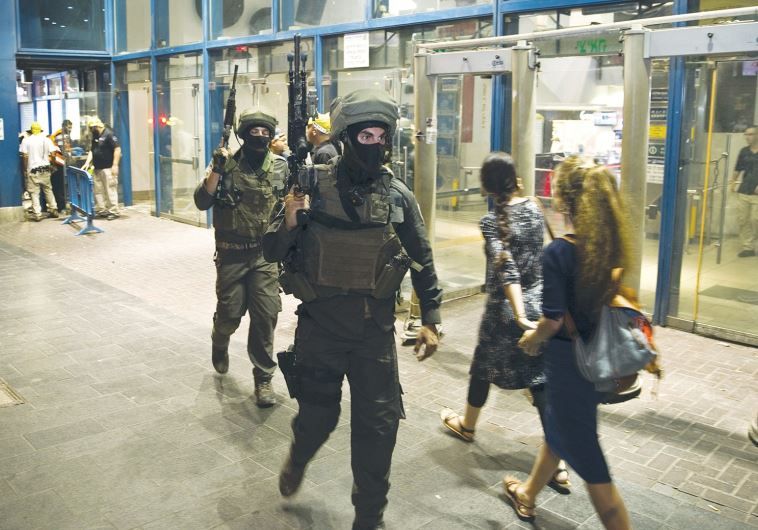ACRI report: Government response to wave of violence shows ‘worrisome trend’ on human rights
Report accuses government of careening down a “slippery slope” of unprecedented infractions against human rights.
 POLICE FORCES walk outside the capital’s central bus station after a Palestinian stabbed a woman nearby
POLICE FORCES walk outside the capital’s central bus station after a Palestinian stabbed a woman nearby